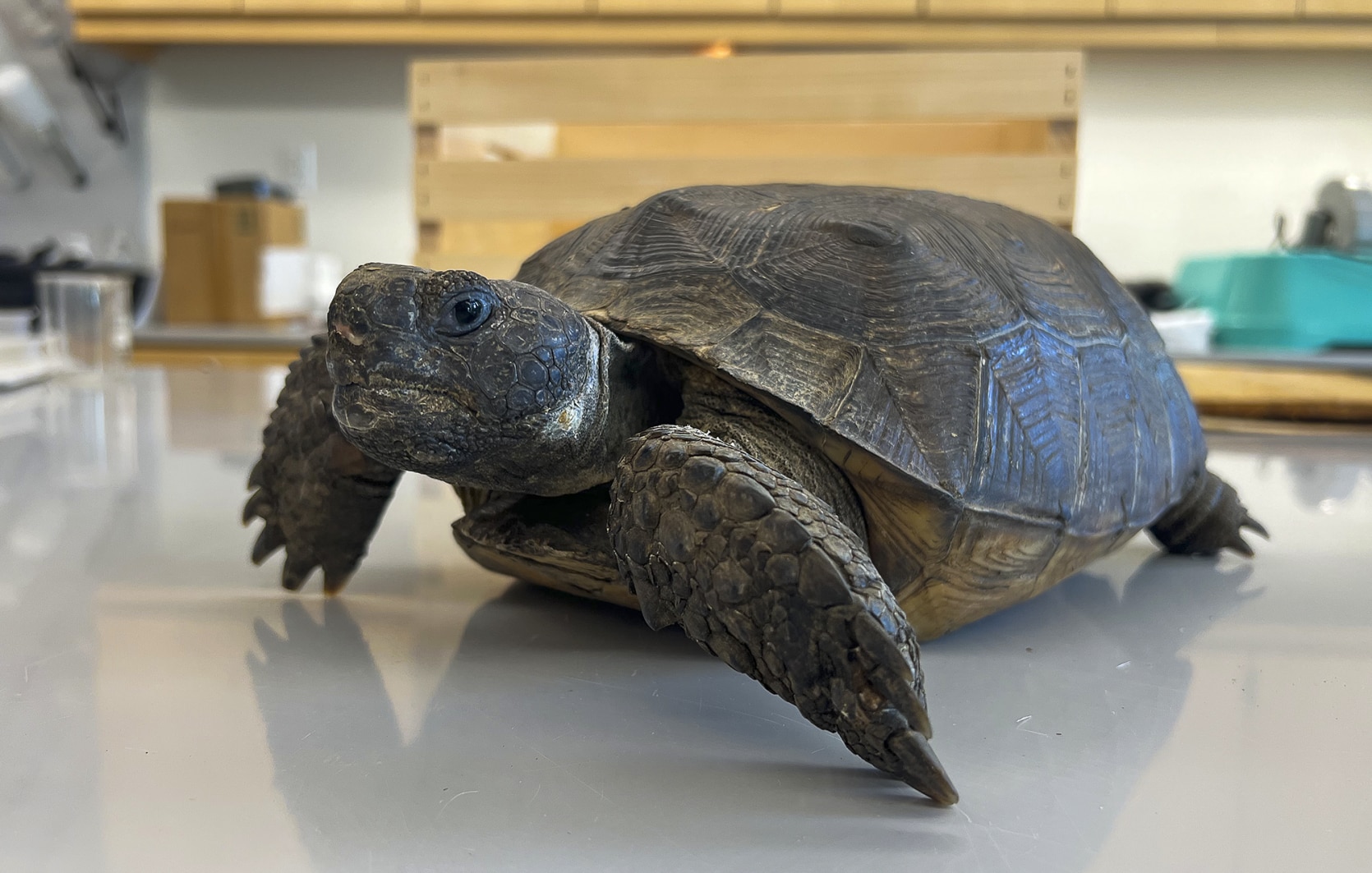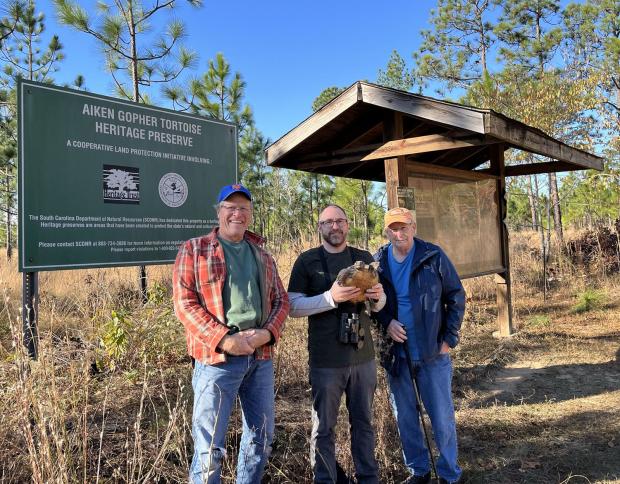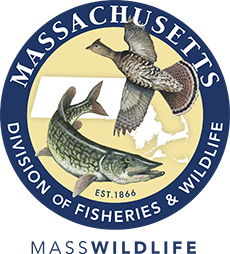- Division of Fisheries and Wildlife
Media Contact
Media Contact, MassWildlife

Gopher tortoises live in parts of Alabama, Florida, Georgia, Louisiana, Mississippi, and South Carolina. They are protected at the state level in these areas, and the western part of their population is listed as federally endangered under the U.S. Endangered Species Act.
So, how did the gopher tortoise end up wandering around central Massachusetts this summer? The answer is likely the illegal wildlife trade, a growing problem threatening America’s native turtles and tortoises. Many animals are illegally removed from their natural habitats every year to live in homes as pets. Turtle poaching is especially problematic, since removing even a single wild turtle can have a negative impact on the entire local population.
Turtles can live a long time and they are slow to reproduce. For example, the box turtle, a native species of special concern in Massachusetts, can live for more than 100 years. But only a small percentage of turtles ever reach adulthood. Turtle eggs and hatchlings make an easy meal for many predators, and crossing roads presents a danger to turtles of all ages. Most adult turtles must engage in breeding for their entire lives to replace themselves in the wild population. For this reason, losing any adult turtles, especially adult females, can result in the extirpation (complete disappearance) of a local population.
MassWildlife staff regularly receive turtles and other animals that have escaped their enclosures, are surrendered by pet owners, or confiscated by law enforcement. In each case, MassWildlife works for the best possible conservation outcome. After the gopher tortoise was discovered in Massachusetts this summer, the animal was cared for by the Turtle Rescue League in Southbridge until arrangements could be made to return it to its natural range. In November, it was transported by a volunteer to a gopher tortoise sanctuary in South Carolina, in coordination with South Carolina Department of Natural Resources.
How to help Massachusetts turtles
Most species of turtles in Massachusetts are protected and cannot be captured or kept as pets. In fact, six of our ten native freshwater turtles are listed under the Massachusetts Endangered Species Act. It is also illegal to move turtles from one location to another.
Leave turtles alone when you see them in the wild and report wildlife crime. It’s important to keep the locations of wild turtles to yourself, especially when communicating online. Turtle poachers may use the information you post to illegally collect turtles. If you need help identifying a turtle, contact MassWildlife at natural.heritage@mass.gov. To report a rare turtle visit mass.gov/heritagehub.

